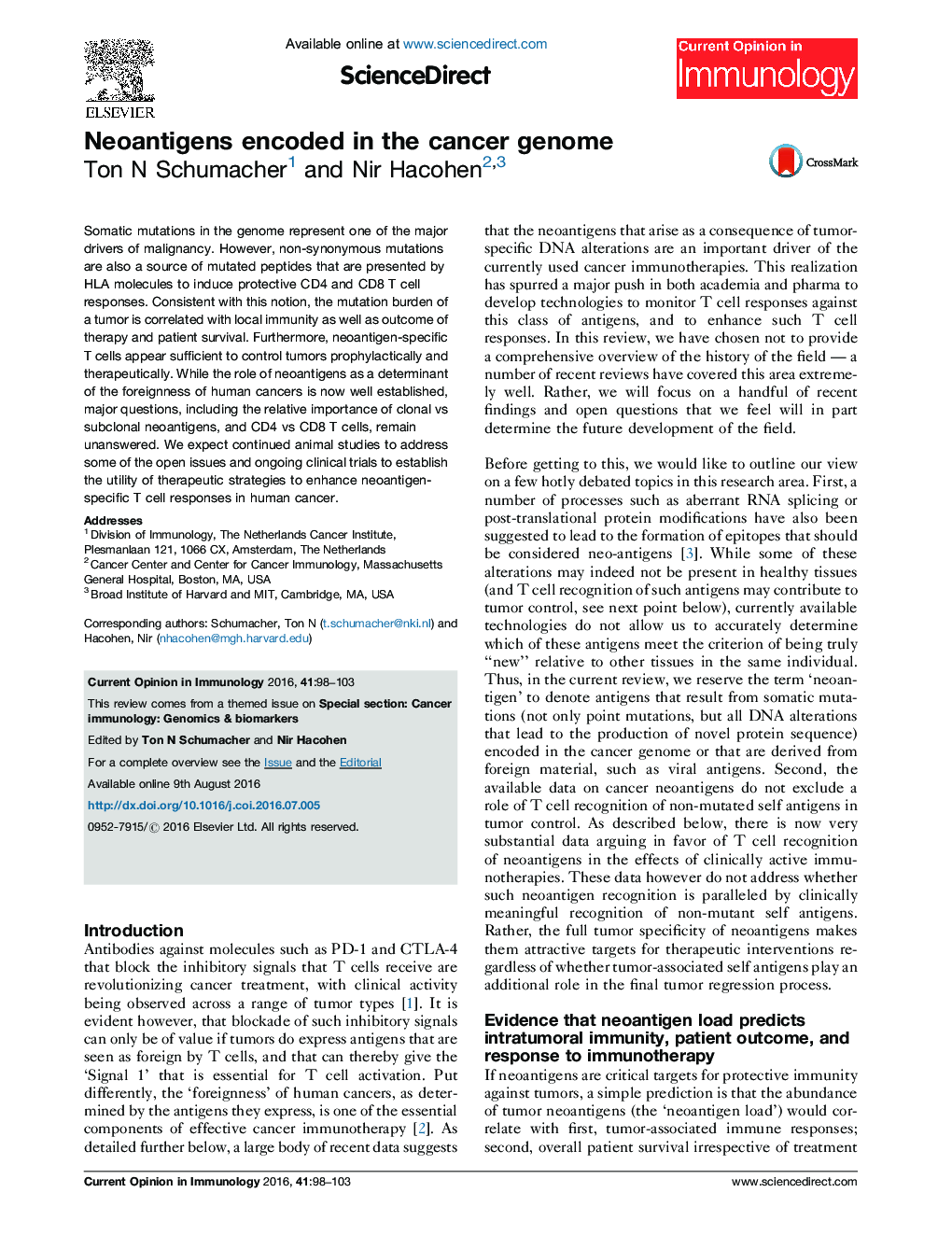| Article ID | Journal | Published Year | Pages | File Type |
|---|---|---|---|---|
| 6114878 | Current Opinion in Immunology | 2016 | 6 Pages |
Abstract
Somatic mutations in the genome represent one of the major drivers of malignancy. However, non-synonymous mutations are also a source of mutated peptides that are presented by HLA molecules to induce protective CD4 and CD8 T cell responses. Consistent with this notion, the mutation burden of a tumor is correlated with local immunity as well as outcome of therapy and patient survival. Furthermore, neoantigen-specific T cells appear sufficient to control tumors prophylactically and therapeutically. While the role of neoantigens as a determinant of the foreignness of human cancers is now well established, major questions, including the relative importance of clonal vs subclonal neoantigens, and CD4 vs CD8 T cells, remain unanswered. We expect continued animal studies to address some of the open issues and ongoing clinical trials to establish the utility of therapeutic strategies to enhance neoantigen-specific T cell responses in human cancer.
Related Topics
Life Sciences
Immunology and Microbiology
Immunology
Authors
Ton N Schumacher, Nir Hacohen,
